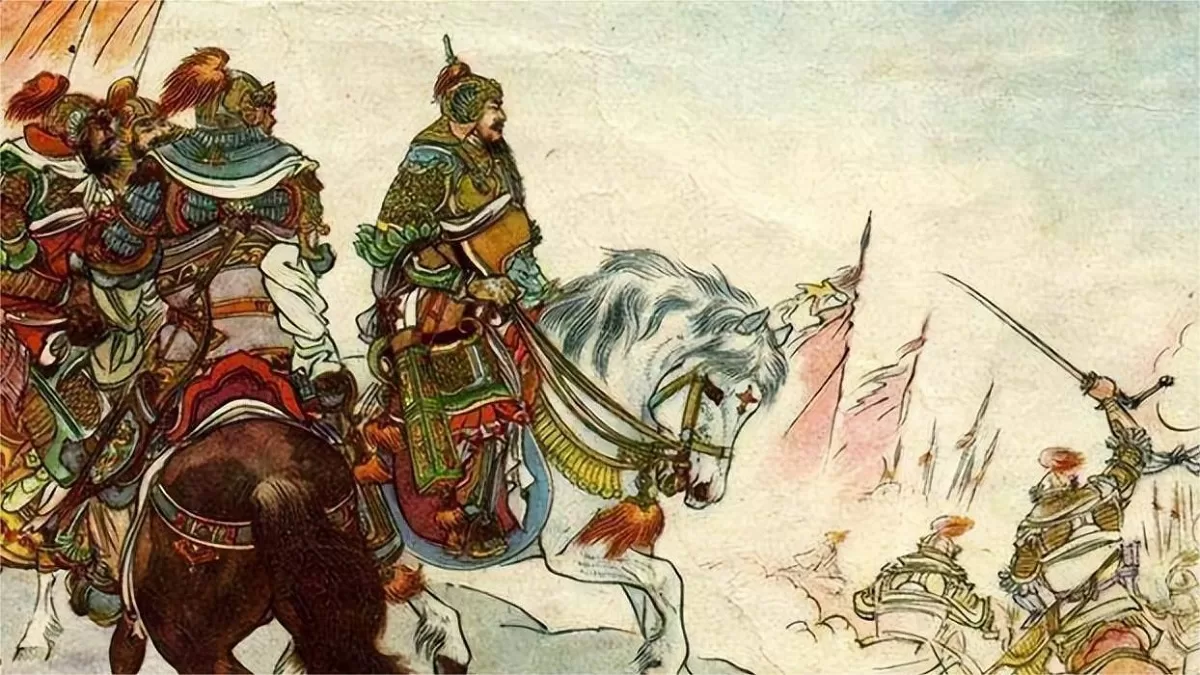Han Shizhong (韩世忠), born on January 26, 1090, in Suide County, Yan’an Prefecture (present-day Suide County, Yulin City, Shaanxi Province), stands as a distinguished figure from the transitional period between the Northern and Southern Song Dynasties in China. Renowned as a skilled military commander, poet, and national hero, Han Shizhong is often mentioned in the same breath as Yue Fei, Zhang Jun, and Liu Guangshi, collectively known as the “Four Great Generals of the Southern Song Dynasty.”
Hailing from humble beginnings, Han Shizhong enlisted in the military at the age of eighteen. Known for his robust and forthright demeanor, he excelled in archery and proved his valor on multiple occasions during campaigns against the Western Xia. Subsequently, he played a crucial role in quelling the rebellion led by Fang La. As the conflict between the Southern Song and Jin Dynasty unfolded, Han Shizhong led his troops in various campaigns, showcasing his ability to overcome numerical disadvantages and earning a reputation as a formidable force.
Upon the ascension of Emperor Gao Zong, he was appointed as the commander of the Left Army of the Imperial Guards and played a pivotal role in suppressing the Miao-Liu Rebellion. When the Jin forces, led by Wanyan Zongbi, invaded Southern Song territory, Han Shizhong strategically retreated to the area around the mouth of the Yangtze River. Employing a navy of eight thousand soldiers, he forced the Jin army into Huangtiandang and pursued them to Jiankang, engaging in a series of battles that spanned several days and yielded significant achievements.
In the fourth year of Shaoxing (1134), during the Battle of Dayi, Han Shizhong defeated the joint forces of Jin and the pseudo-Qi regime, further solidifying his military prowess. Subsequently, he relocated to Chuzhou, actively expanding his forces. Despite having a modest army of less than thirty thousand soldiers, he transformed Huaidong into a crucial defense line for the southeast. During this time, he consistently advocated against peace negotiations with the Jin Dynasty.
In the tenth year of Shaoxing (1140), concurrently with Yue Fei’s northern expedition, Han Shizhong achieved victories in regions like Haizhou. However, following these successes, he was relieved of his military command and summoned to the imperial court, where he was appointed as the Secretariat. Over time, he received promotions and titles, eventually becoming the military governor of three towns: Zhennan, Wuan, and Ningguo, with the additional title of Prince of Xian’an.
In his later years, Han Shizhong withdrew from the military scene, choosing a reclusive life away from political affairs. He enjoyed leisurely moments around West Lake, emphasizing his commitment to personal enjoyment rather than military exploits. In the twenty-first year of Shaoxing (1151), Han Shizhong passed away at the age of sixty-three. Posthumously, he was granted the title of Grand Preceptor and the Prince of Qi, and his achievements were honored with the posthumous title of “Zhongwu” (忠武). His contributions were commemorated in the ancestral temples of Emperor Gao Zong.
Han Shizhong’s military achievements during the conflicts against the Western Xia and Jin Dynasty, as well as his significant role in suppressing internal rebellions, have etched his name in the annals of Southern Song history. His refusal to align with the corrupt Prime Minister Qin Hui and his vocal support for the unjustly accused Yue Fei exemplify his commitment to the welfare of the state. Han Shizhong’s legacy endures not only in military history but also in the literary realm, with poems like “Linjiang Xian” and “Nan Xiangzi” being passed down through generations.


